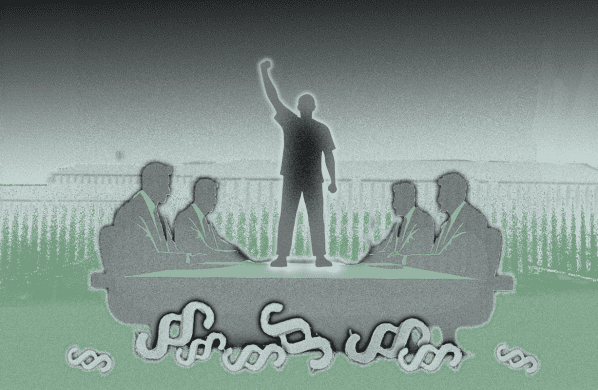Uddrag af omtalen af programsamarbejdslandet Bangladesh i det amerikanske udenrigsministeriums årsrapport for 2004 om menneskerettighedernes stilling verden over.
The head of Bangladeshs parliamentary democracy, Prime Minister Khaleda Zia, won her position in elections that were generally peaceful and free in most places, although sporadic violence still occurred.
The Governments human rights record remained poor, as numerous human rights abuses continued to occur, including extrajudicial killings and torture by security forces. Prison conditions remained extremely harsh and life threatening and contributed to some deaths.
Police corruption continued to be a problem, and a climate of impunity was an obstacle to ending the abuses and killings. Violence was a pervasive element in the countrys politics. Fair and expeditious trials were problematic due to lengthy pretrial detention, corruption and a large judicial case backlog.
Freedom of speech, movement and assembly was restricted, and opposition political parties continued to boycott Parliament, claiming a lack of opportunity to engage substantively on legislative and national issues. Child labor and abuse of child workers remained widespread and were serious problems.
Trafficking in women and children for the purpose of prostitution and forced labor were also concerns, as was violence against women and discrimination against indigenous people and religious minorities.
The U.S. human rights and democracy strategy in Bangladesh strengthens democratic institutions, transparency and accountability to citizens, and respect for the rule of law and human rights.
To do this, the United States seeks to reform political parties, increase informed citizen political participation, strengthen local government, improve police and military professionalism, reduce court system backlogs, encourage better governance, reduce corruption, promote religious tolerance and address trafficking, as well as improve women, children and worker rights.
U.S. officials publicly highlight the need for improvements in human rights conditions by using the State Departments annual Country Report on Human Rights Practices as a key tool for moving the dialogue on human rights forward.
The Country Report is widely publicized in Bangladesh and closely scrutinized by the Government, opposition, press and non-governmental organizations (NGOs) both in Bangladesh and abroad.
The Ambassador and other U.S. officials work publicly and privately to engage the Government, the opposition and diverse elements of civil society on the importance of democratic institutions, including the parliament, the rule of law and respect for human rights, and have condemned violence in the form of strikes and personal assaults as an instrument of political coercion.
On Human Rights Day in December, the Deputy Chief of Mission hosted a human rights reception to signal the importance the United States places on human security.
Attendees included local human rights activists, victims of human rights abuses, Bangladeshi officials and members of the diplomatic community. In conjunction with this event, the Ambassador wrote an op-ed piece printed in several newspapers on the importance of religious tolerance, freedom of speech and equal access to justice.
Because many of the human rights abuses centered on issues of governance and corruption, the Embassy focused its democracy promotion efforts in the sector of political reform and improving local governance.
For example, the U.S. Agency for International Development (USAID) is funding projects totaling 12 million dollar to strengthen parliamentary committees, reform political parties, and assist elected local governments to play a more active role in society.
The United States also continues to support local human rights groups through a four-year, 7,4 million dollar program that provides critical services such as monitoring police stations and providing shelter to abused women through sub-grants, as well as training and technical assistance to human rights NGOs.
Its initiatives to combat the endemic problem of corruption and train Bangladeshi journalists in investigative journalism continue to evolve.
In order to address judicial reform, the United States has helped to establish a program of alternative dispute resolution which holds promise of modestly contributing to clearing the court system of its million-case backlog and enhancing access to justice for all citizens.
The Embassy also makes effective use of the International Visitor program to advance the goal of respect for rule of law and sponsor expert speakers on topics like press freedom.
Since the police have perpetrated many of the human rights abuses, the Embassy has begun to focus not only on enhancing their professional skills, but improving their commitment to human rights and the rule of law.
The Regional Security Office and Office of Defense Cooperation are also heavily involved in promoting human rights through the programs they sponsor to improve the professionalism of Bangladeshs security and military forces. Anti-Terrorist Assistance, International Military Education and Training, and Counter-Terrorism money has been used for this purpose.
We are also beginning to use the Department of Justices International Criminal Investigative Training Assistance Program to help improve police professionalism. The Office of Defense Cooperation funds and encourages Bangladesh to continue and increase its support to UN peacekeeping operations, which teach the Bangladeshi military international standards as it is called upon to enforce UN human rights efforts in its peacekeeping missions.
The Islamic Foundation, a Government of Bangladesh agency, provides religious training to approximately 45.000 imams nationwide. USAID provided orientation to 200 imams from the Islamic Foundation about U.S. programs in human rights, womens rights, health care, HIV/AIDS, agriculture, economic growth, democracy and governance.
These imams also visited several U.S.-sponsored project sites in an effort to promote dialogue and work with the Government of Bangladesh to show them an aspect of U.S. foreign policy not typically featured in the local media.
Improving conditions for Bangladeshi workers has been a consistent aspect of the U.S. overall human rights strategy.
Working with the Government, the American Center for International Labor Solidarity, the International Labor Organization, and local labor and industry groups, the United States has had many achievements, including the virtual elimination of child labor from the export-oriented ready-made garment industry through a 1,5 million dollar project.
The U.S. Labor Department and USAID also fund programs to eliminate the worst forms of child labor, to support working womens education centers, empower rural women in the informal sector and provide opportunities for persons with disabilities.
The International Program on the Elimination of Child Labor activities include a 6 million dollar project to eliminate the worst forms of child labor in five targeted industries – beedi production (the hand-rolled cigarette industry), match-making, tanneries, construction and child domestic workers.
As of December 2003, 19.874 children had been removed from hazardous work, and approximately 30.000 children have been placed in either non-formal or formal education or pre-vocational training.
Finally, Bangladesh has committed to allowing full freedom of association in the export processing zones, and Embassy Dhaka continues to press the Government to make good on this promise.
USAID leads a thematic working group on anti-trafficking with the Government, civil society and other donor representatives that has developed the conceptual framework for the sector and launched a media communications package used by the Government and NGOs working in the field.
The results are clear: Public awareness and condemnation of trafficking are going up, as are arrests and convictions of traffickers. Through a series of anti-trafficking film festivals, the United States is working to strengthen awareness of the issue regionally as well as in Dhaka.
USAID also began an innovative program with an imams association in Chittagong, under which imams in the border areas receive training in anti-trafficking. Approximately 500 of these imams train other imams and engage their communities in discussions of this crime.
Several of the imams who received this training have written letters to newspapers as well as conducted meetings following Friday prayers to initiate community strategies to combat trafficking.
Kilde: Det amerikanske udenrigsministerium















